
20 Examples of Adverb of Manners » OnlyMyEnglish
Adverbs of manner. An adverb of manner describes how you do an action. For example, They dress elegantly. Some elderly people drive slowly. She works very hard. Adverbs of manner are really useful because they let us add a lot of extra details to descriptions, to make what we say more interesting and dynamic to the listener or reader.
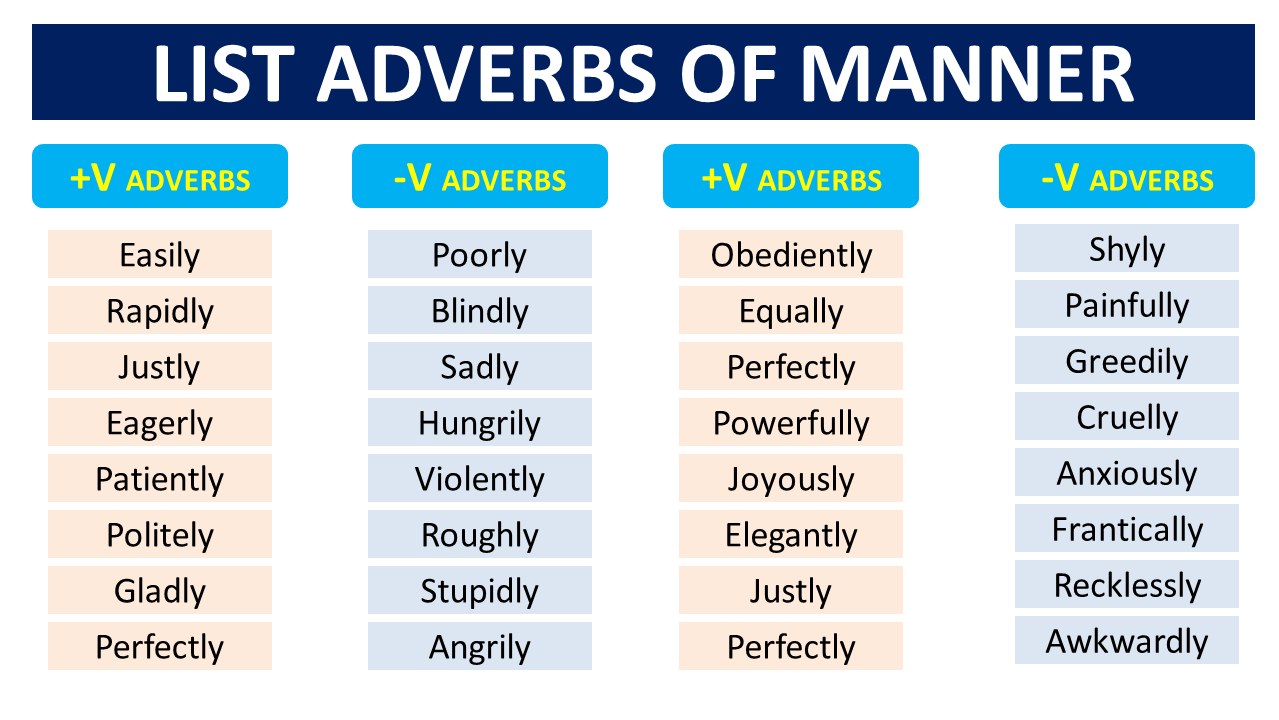
List adverbs of manner Examples of adverbs of manner Pdf Vocabulary Point
An adverb is a word that can modify or describe a verb, adjective, another adverb, or entire sentence. Adverbs can be used to show manner (how something happens), degree (to what extent), place (where), and time (when). Adverbs are usually formed by adding -ly to the end of an adjective (e.g., "quick" becomes "quickly"), although there.

Adverbs of Manner Useful Rules, List & Examples Efortless English
Adverbs of manner are formed by adding - ly to the corresponding adjectives. Examples of adverbs of manner. bad - badly. clear - clearly. rapid - rapidly. complete - completely. surprising - surprisingly Adverbs of manner allow speakers and writers to express the specific way in which an action is performed.

300+ List of Adverbs of Manner Definition and Infographics GrammarVocab
So an adverb of manner can be said to be one which depicts the way in which an action is done. Q3 . Give some examples of adverbs of manner. Tactfully, knowingly, sadly, happily, seriously, perfectly, meticulously, mercilessly, gracefully, boldly, painfully, unexpectedly, etc. are some examples of adverbs of manner..
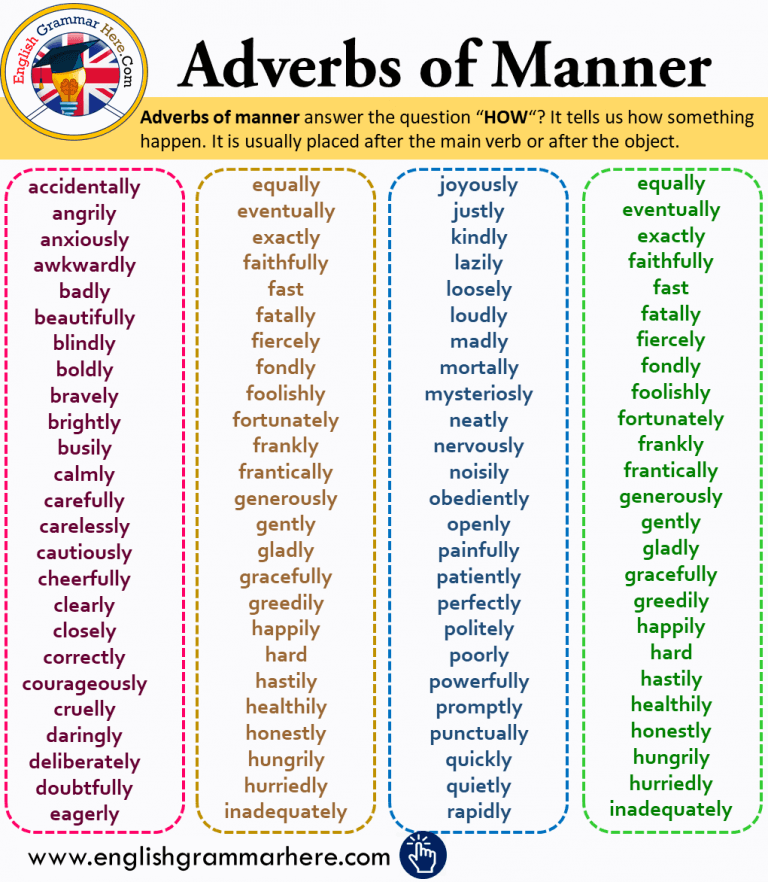
Adverbs of Manner List and Example Sentences English Grammar Here
Adverbials of manner 1. GapFillTyping_MTUwMTI= Adverbials of manner 2. GapFillTyping_MTUwMTM= Level: intermediate. If an adjective already ends in -ly, we use the phrase in a.. way to express manner: silly: He behaved in a silly way. friendly: She spoke in a friendly way. A few adverbs of manner have the same form as the adjective: They all.

Adverb Of Manner Examples Adverbs Of Manner Where exactly they appear depends primarily on
Updated on March 06, 2020. In English grammar, an adverb of manner is an adverb (such as quickly or slowly) that describes how and in what way an action, denoted by a verb, is carried out. These adverbs are also called manner adverbs or manner adverbials. Most adverbs of manner are formed by adding -ly to adjectives, but there are important.
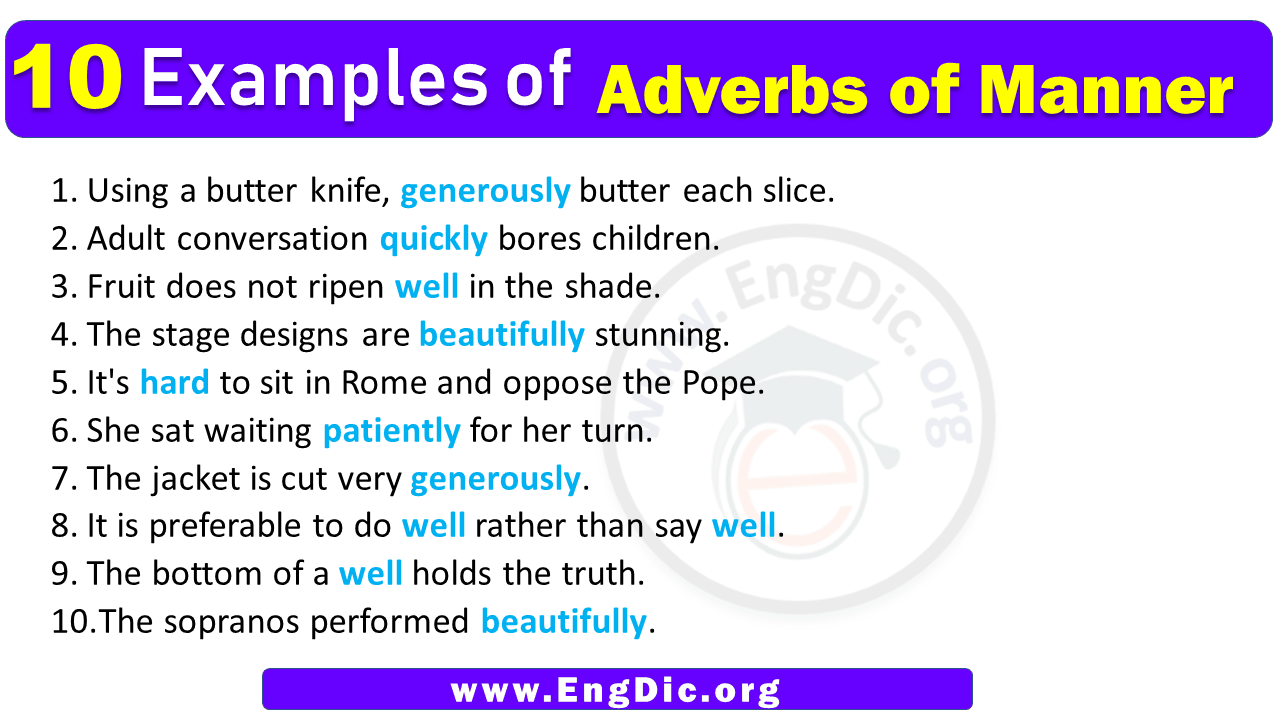
10 Examples of Adverbs of Manner in Sentences EngDic
Adverbs of manner describe the manner in which an action is done. Examples: What you do, do it passionately. (with a lot of passion) Hold the box carefully. It might break as it's fragile. (in a careful manner) Jon does his work honestly. (with honestly) She angrily left the place. (in an angry manner)
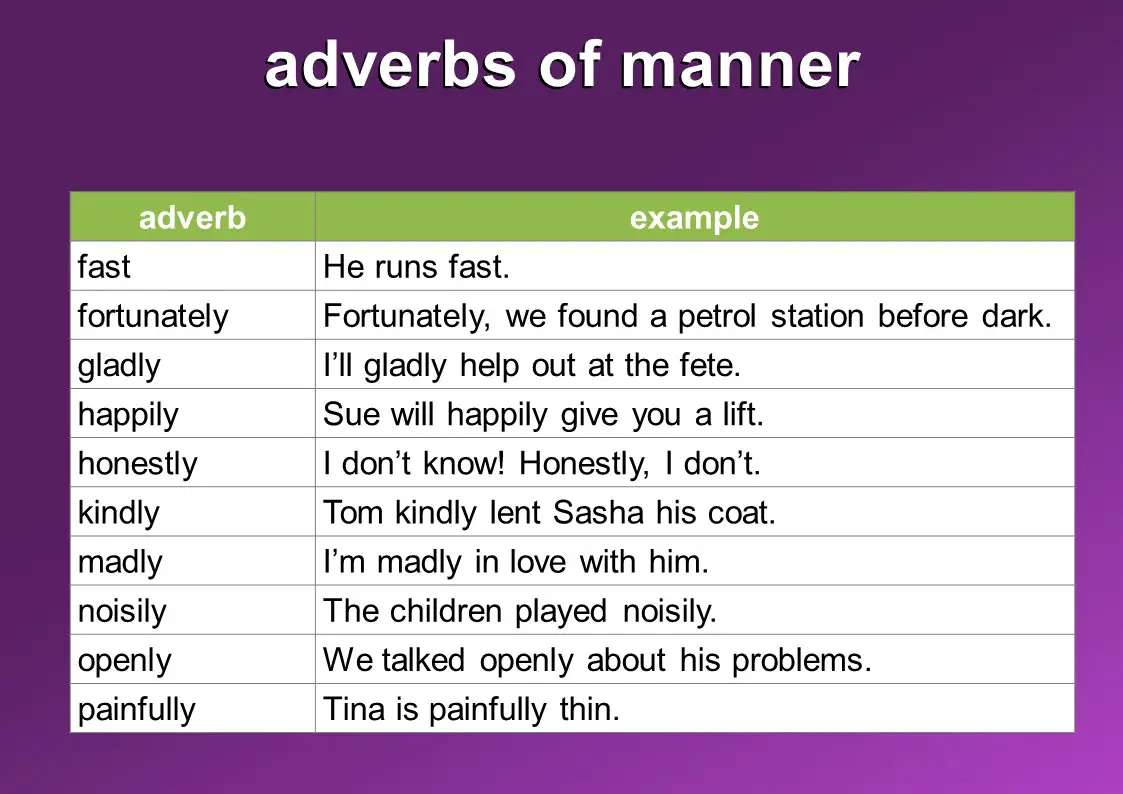
Adverbs of manner meaning and examples Mingleish
What is an adverb of manner? Adverbs of manner describe how something happens. For example, it is possible to walk or run at different speeds. The words used to describe walking or running at different speeds (quickly or slowly for example) are excellent examples of adverbs of manner. They help the reader gain greater insight into the way a written scene is playing out.
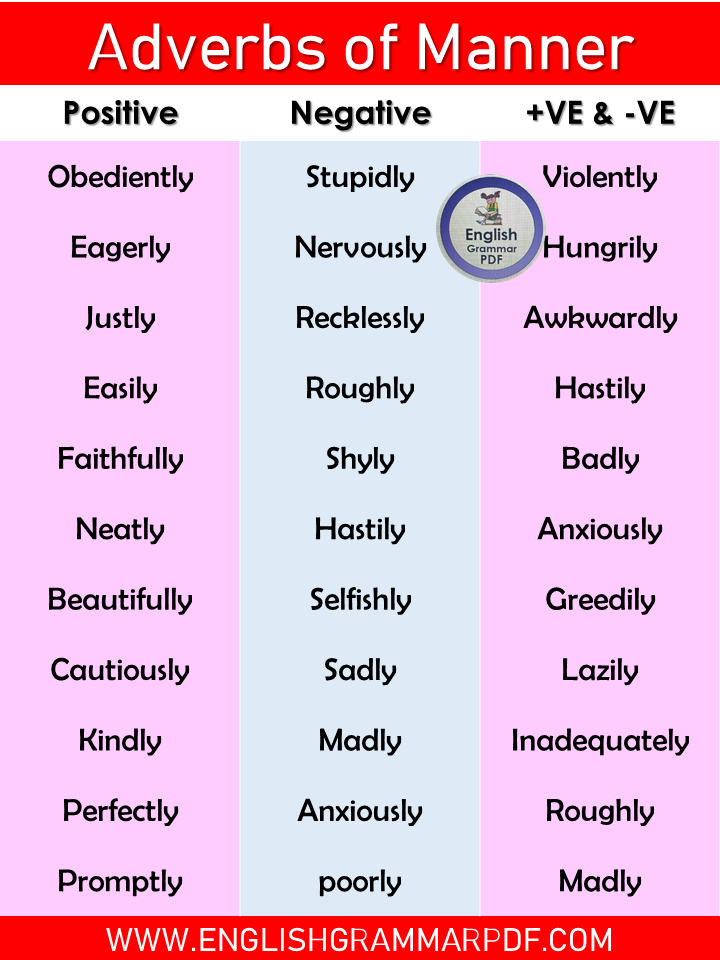
List of Adverbs of Manner with Examples English Grammar Pdf
Adverb of Manner (how) An adverb of manner tells us how an action occurs. The lion crawled stealthily. Will you come quietly, or do I have to use earplugs? (Comedian Spike Milligan) (NB: Lots of adverbs of manner end "-ly.") Adverb of Time (when or how often) An adverb of time tells us when an action occurs or how often. I tell him daily.

Adverbs of Manner List English Study Here
Adverbs of manner most commonly come directly after intransitive verbs that they modify. If the verb is transitive, then the adverb must not immediately follow the verb; it can either come before the verb or after the direct object. For example: "He speaks well ." (intransitive) "She walked slowly ." (intransitive)
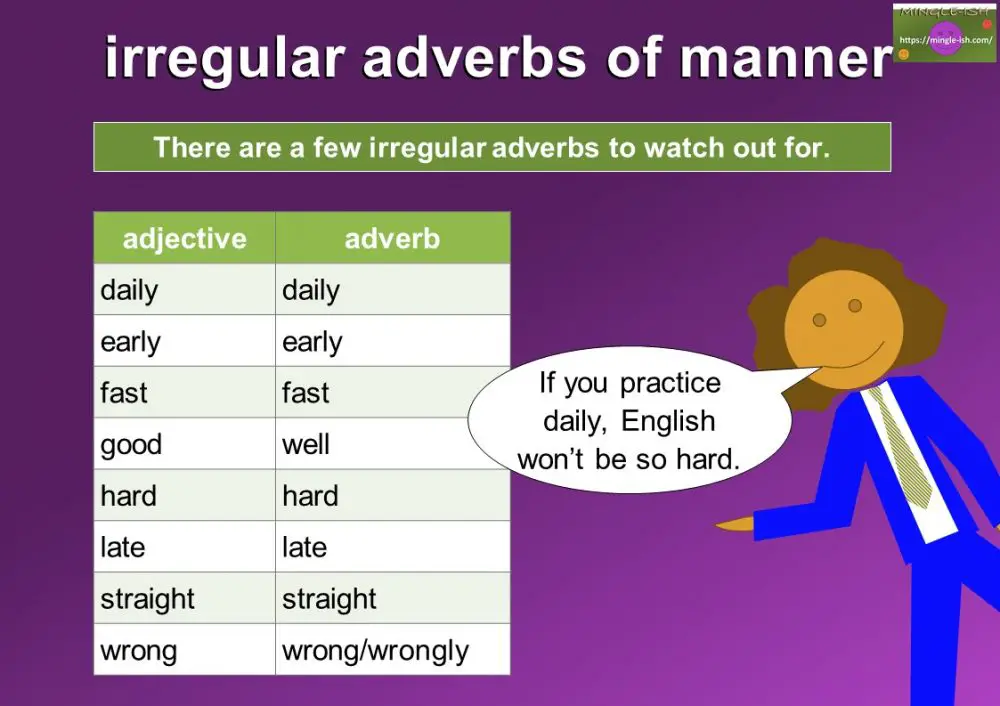
Adverbs of manner meaning and examples Mingleish
An adverb of manner is an adverb (such as quickly or slowly) that describes how and in what way the action of a verb is carried out. Most adverbs of manner end in -ly such as badly , happily , sadly , slowly , quickly, and others that include well , hard and fast. Adverbs of manner most often appear after a verb or at the end of a verb phrase.

Adverbs of Manner in English English Study Here
Exercise 1. 1. The adverbs of manner. The adverbs of manner are invariable words that modify verbs, adjectives and other adverbs. They indicate how an action occurs or develops. Donald usually eats quickly. In this example we can see that the adverb quickly indicates how Donald usually eats, providing more information about the way in which the.
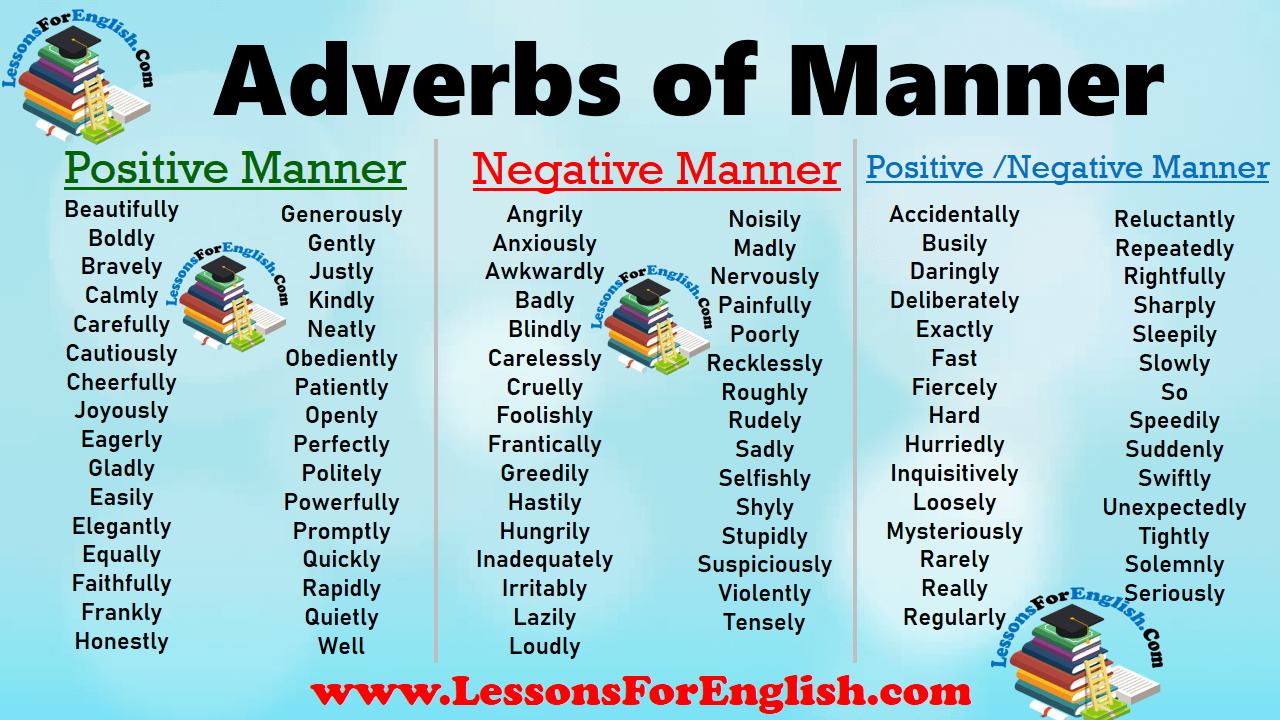
Adverbs of Manner Lessons For English
This is an alphabetical list of common single-word manner adverbs. Adverbs of manner mainly modify verbs and tell us the way in which something happens. They form the largest group of adverbs. We make most of them simply by adding -ly to their corresponding adjective. This is an alphabetical list of 130 common single-word adverbs of manner.
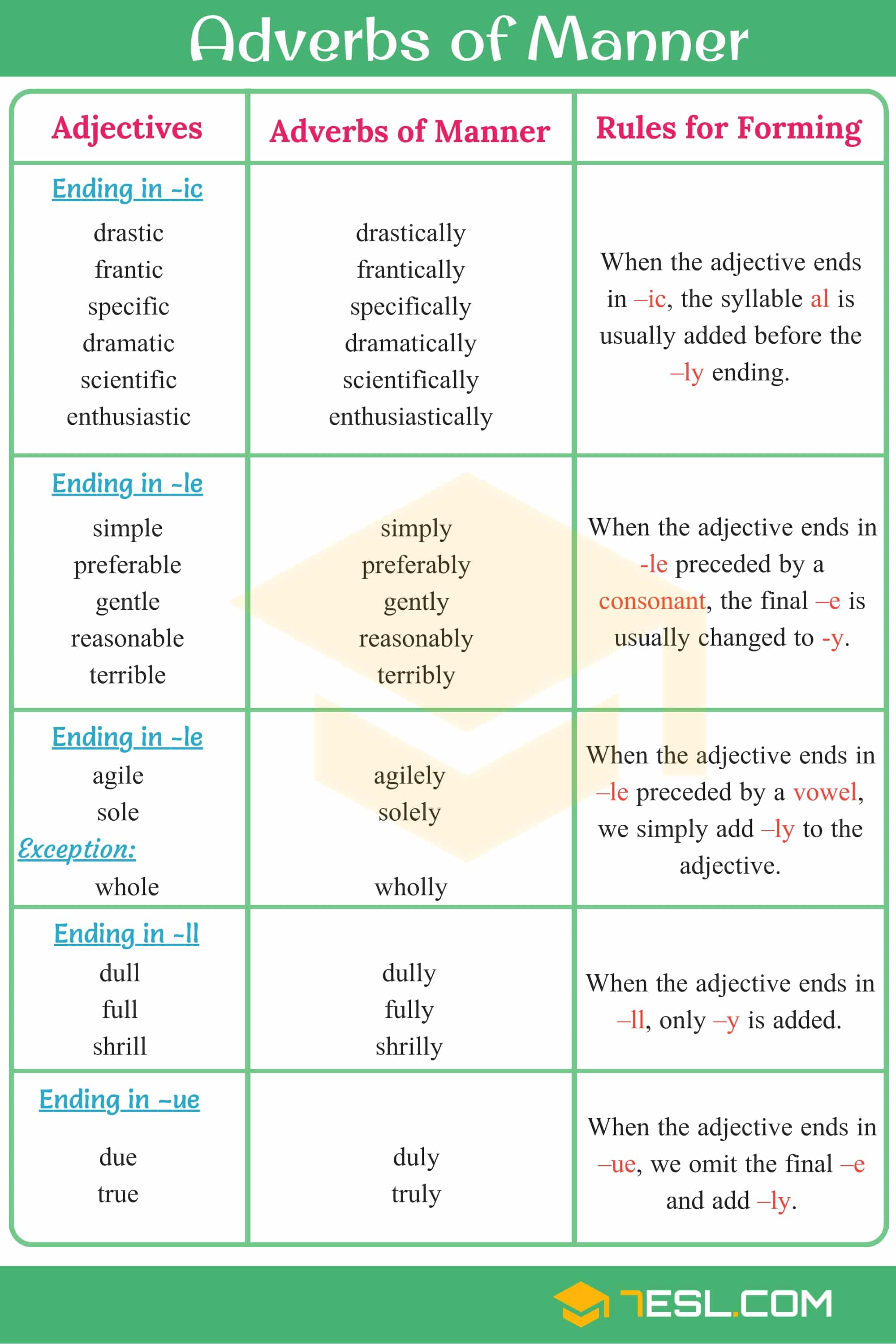
Adverbs of Manner Useful Rules, List & Examples • 7ESL
Remember! An adverb of manner cannot be put between a verb and its direct object. For example, it is incorrect to say: Daisy ate slowly the pizza. 1. Modal verbs and phrasal verbs. With modal verbs, the adverb of manner appears after the main verb or after the object:. Subject + modal + main verb + adverb of manner e.g. You mustn't shout loudly in the corridor.
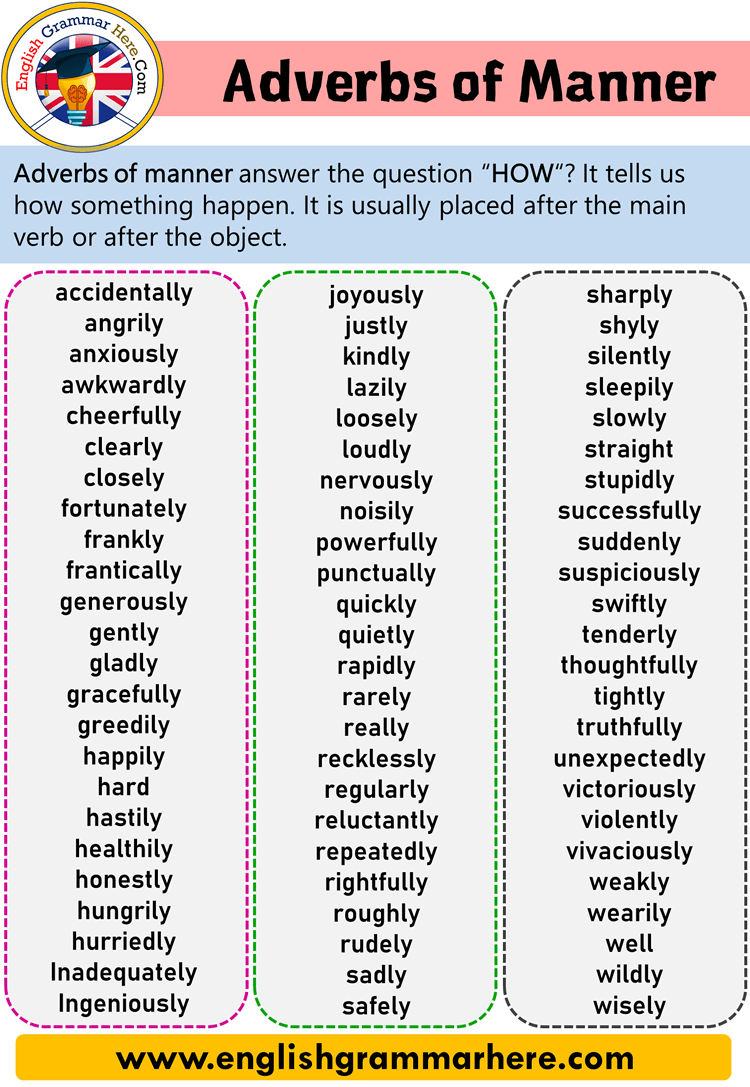
Adverbs of Manner, Definition and Examples English Grammar Here
Choose adjectives or adverbs of manner to complete the follwing sentences. 1 Peter is a driver. He drives very . 2 Turtles walk because they are animals. 3 A person usually speaks . 4 They are ; they are speaking . 5 Gordon plays very . He is a player.
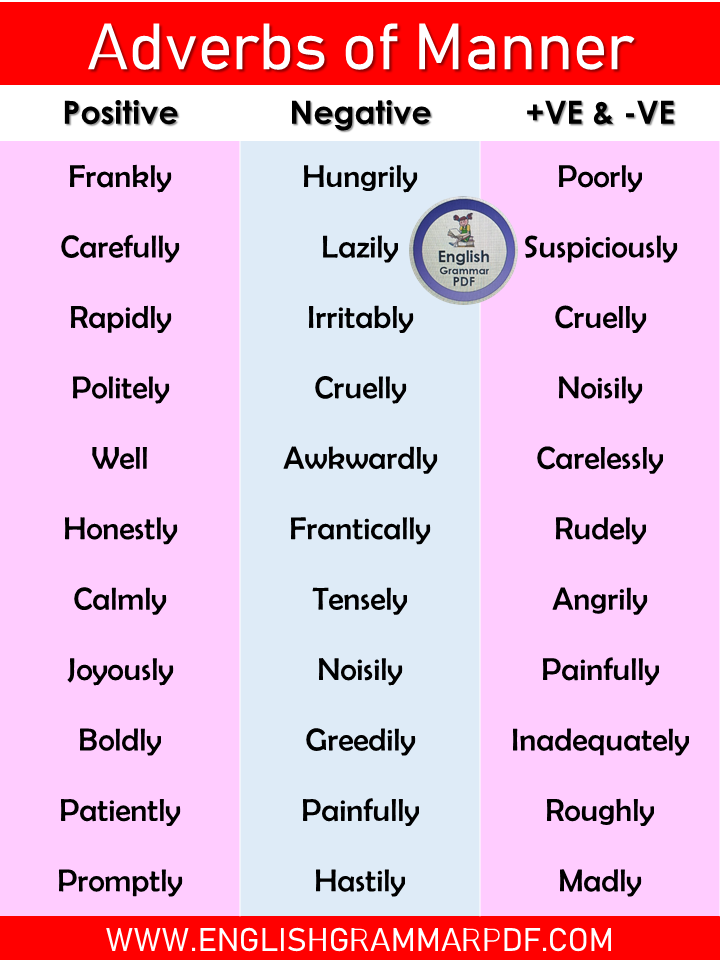
List of Adverbs of Manner with Examples English Grammar Pdf
Adverbs - The surest way to identify adverbs is by the ways they can be used - they can modify a verb, an adjective, another adverb or even a whole clause. Adverbs are sometimes said to describe manner or time. This is often true, but it doesn't help to distinguish adverbs from other word classes that can be used as adverbials, such as preposition phrases, noun phrases and subordinate clauses.